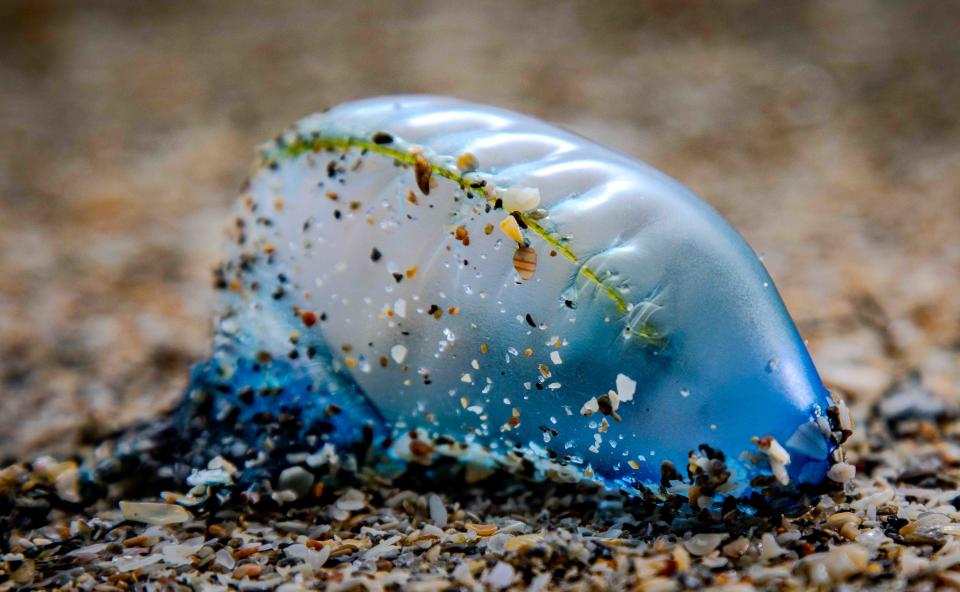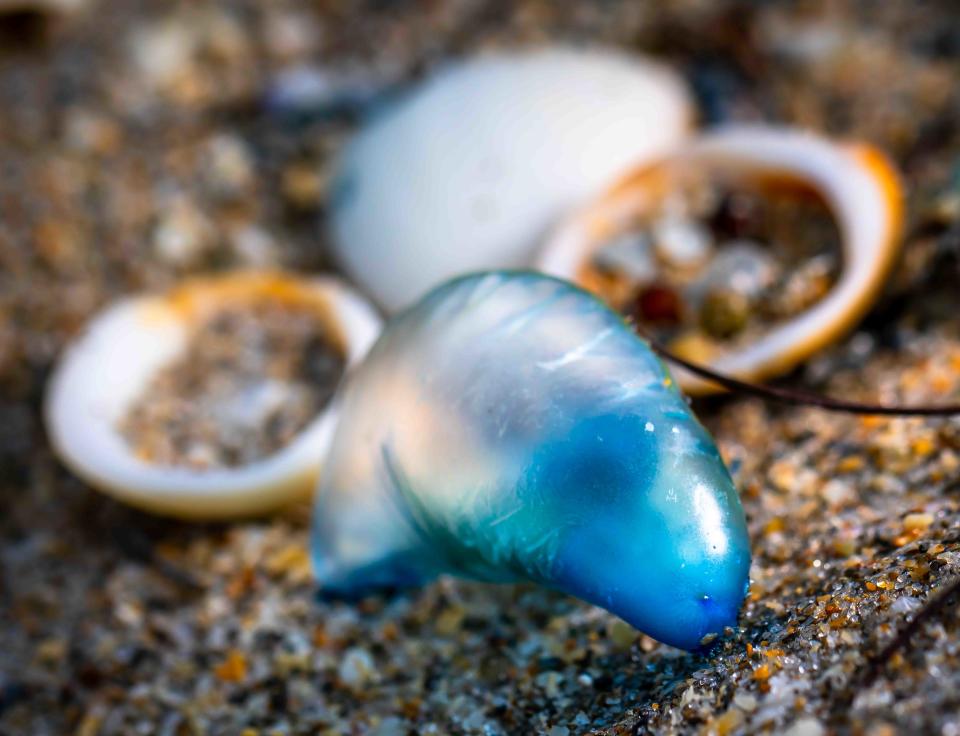Men-of-war make annual appearance on Palm Beach coastline
Visitors to Palm Beach's sandy shores should be on the lookout for annual guests that are known for their sting.
Portuguese men-of-war are appearing on beaches along the island, a common occurrence for this time of year as winds from the east blow the creatures onshore, said Craig Pollock, a longtime lifeguard supervisor for the town.

"They just blow in with the surf and the wind," he said of the purple and blue members of the siphonphore family — not to be confused with a jellyfish — that can leave beachgoers with painful stings.
Over the past few days, the balloon-like men-of-war have been spotted more frequently along beaches in the town, often close to the shoreline. They may arrive either with others or on a solo trip. Their arrival typically follows a cold front, when the wind from the west blows them away from the shoreline, Pollock said. When winds shift back from the east, the men-of-war — buoyed by their carbon monoxide and air-filled floats — drift back toward land.
More: Palm Beach seeks federal money for Midtown Beach project, but access could stall progress
The number seen over the past few days is on par for this time of year, Pollock said. Beaches where lifeguards are stationed will fly purple flags to indicate dangerous marine life, and the presence of the men-of-war will be marked on condition boards at those beaches, he said.
When men-of-war wash up on the beach, their tentacles still have some stinging power, Pollock said.
The ones in the water are especially sneaky: Their colors blend into the ocean around them, and their tentacles can trail up to 40 feet long, making them difficult to see and avoid, Pollock said. The tentacles also can break off and float free when the men-of-war are tossed in the surf closer to shore, he added.
"It's really hard to see for swimmers," he said. "You'll just feel it."

Those who experience a sting should remove the tentacle from their skin as quickly as possible, he said. If at a beach with a lifeguard, a person who has been stung can seek help there. Most lifeguards carry vinegar, which may help relieve the sting, along with hot water or cold packs, Pollock said. Older remedies — meat tenderizer, urine, lemon juice, papaya — are no longer used, he said.
"There's no magic cure for a man-of-war sting," Pollock said. "It's basically something that you're going to have to deal with when you get stung."
People vulnerable to allergic reactions caused by a sting — including bees and fire ants — should be especially careful, because they may go into anaphylactic shock, he said.
For really bad stings, where someone is experiencing an allergic reaction or the pain from the sting isn't subsiding, that person should go to the hospital, Pollock said.
Kristina Webb is a reporter for Palm Beach Daily News, part of the USA TODAY Florida Network. You can reach her at kwebb@pbdailynews.com. Subscribe today to support our journalism.
This article originally appeared on Palm Beach Daily News: Portuguese men-of-war make annual visit to Palm Beach

